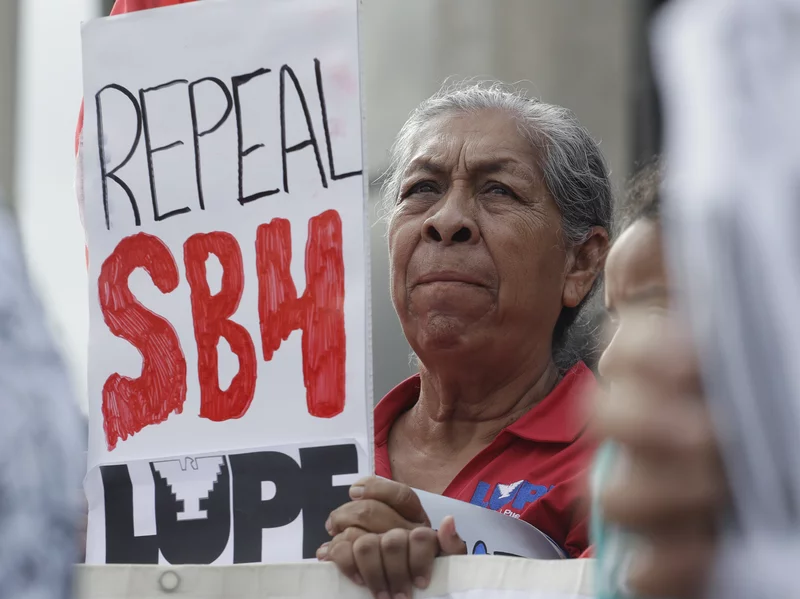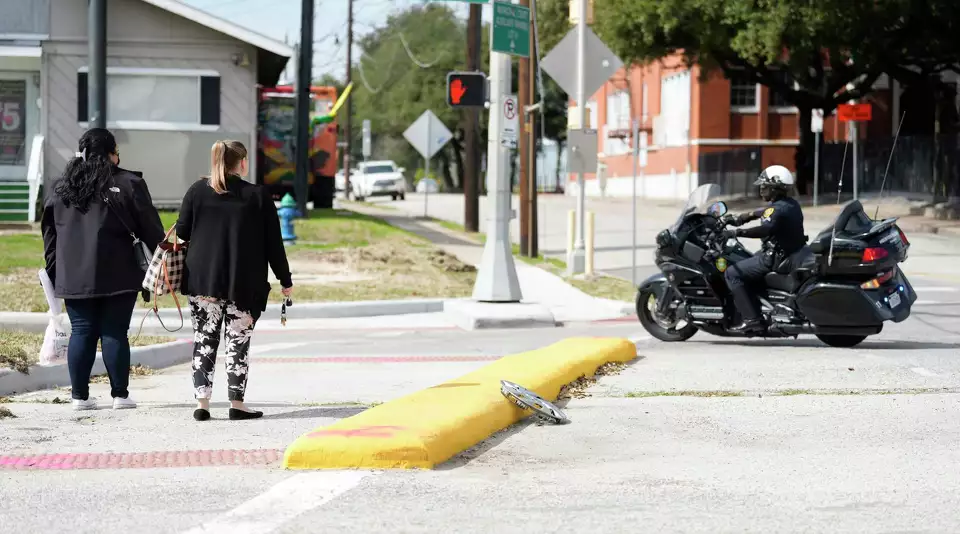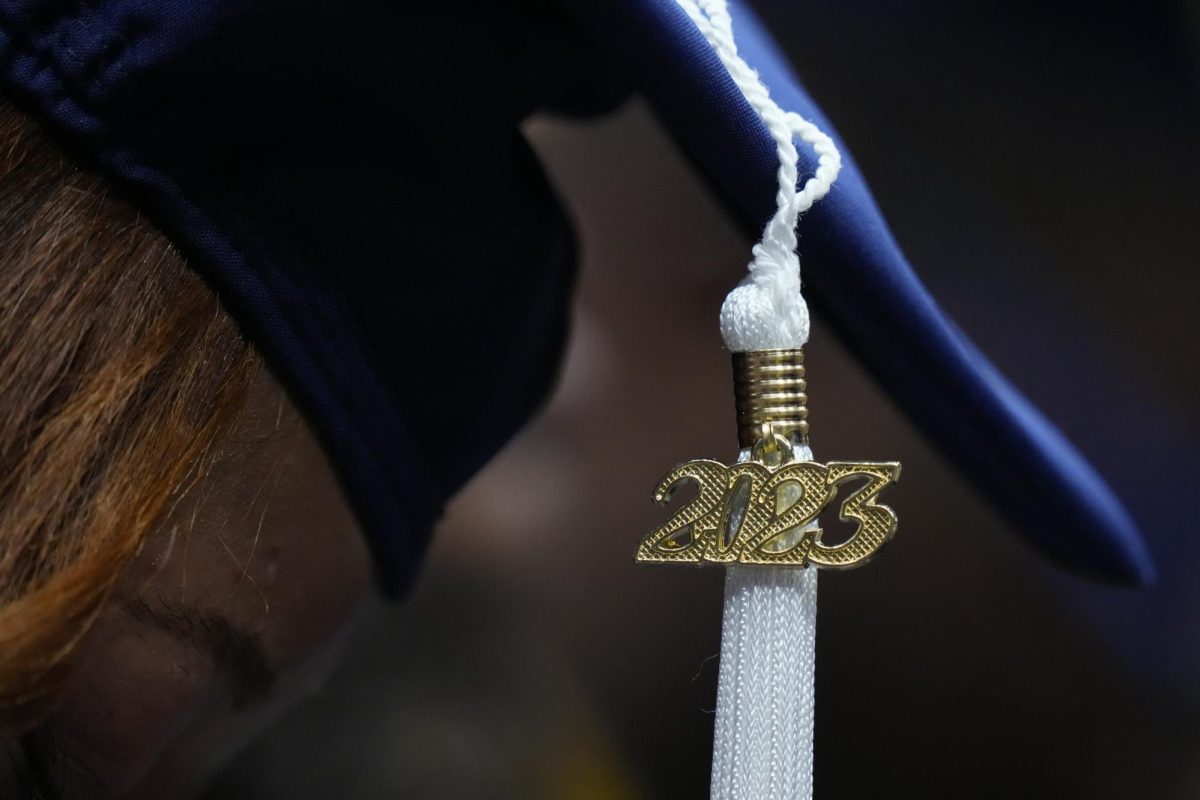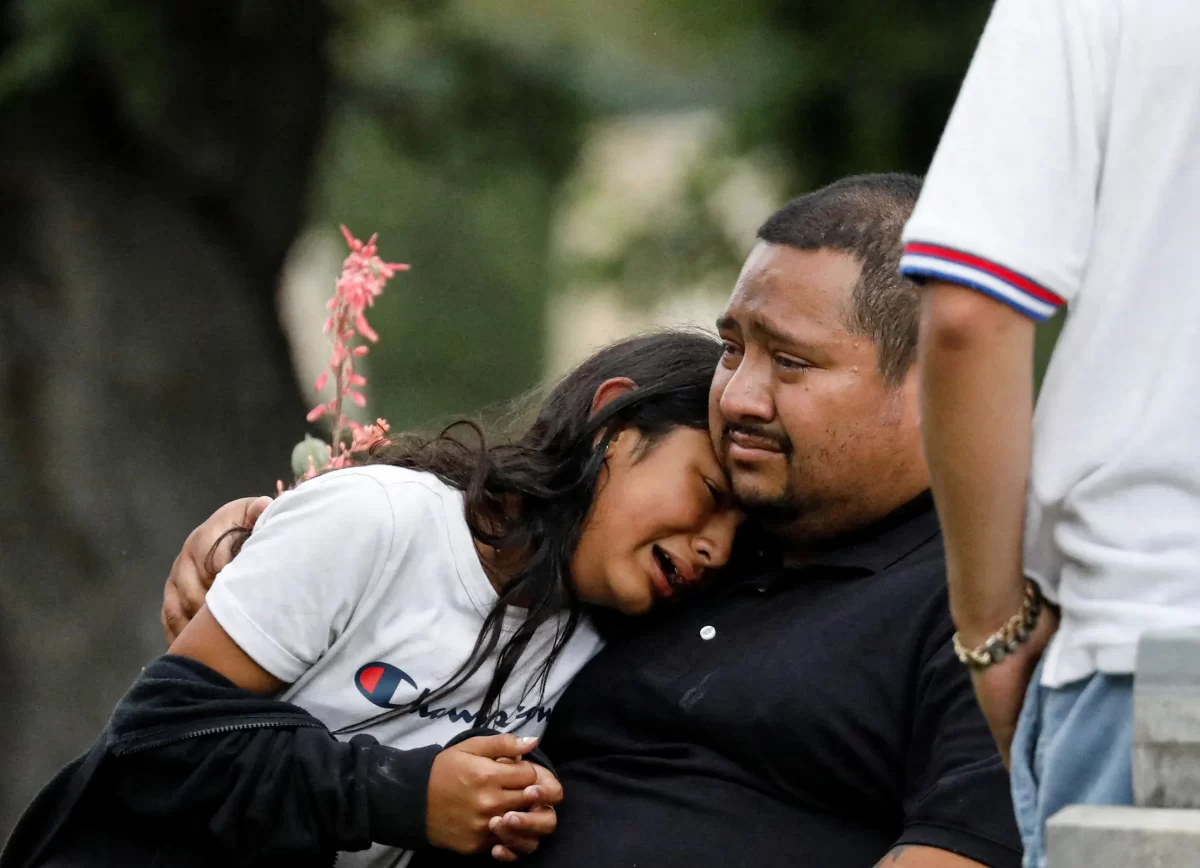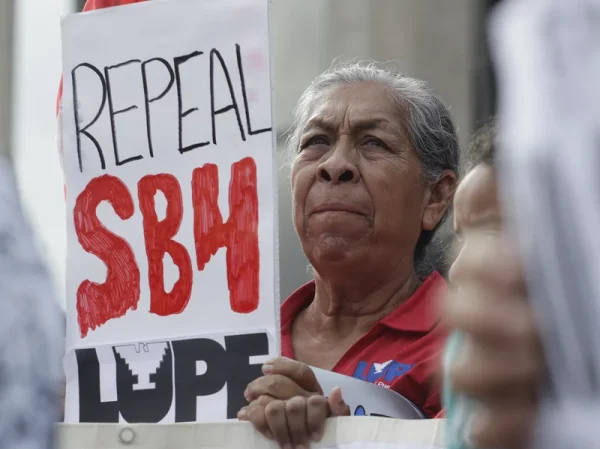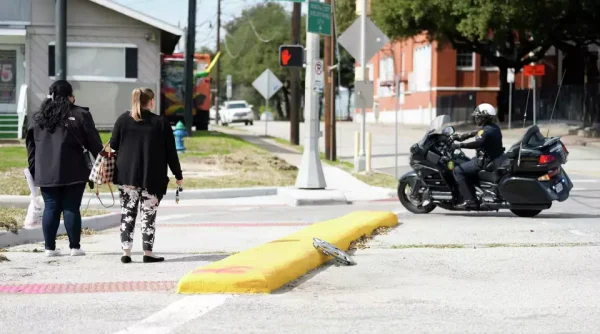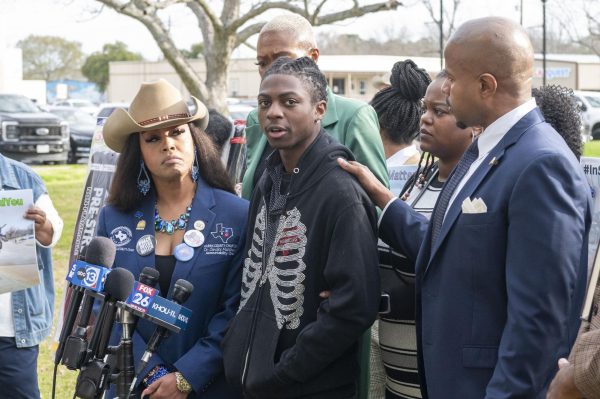Judge: Texas may deny birth certificates to immigrants’ kids
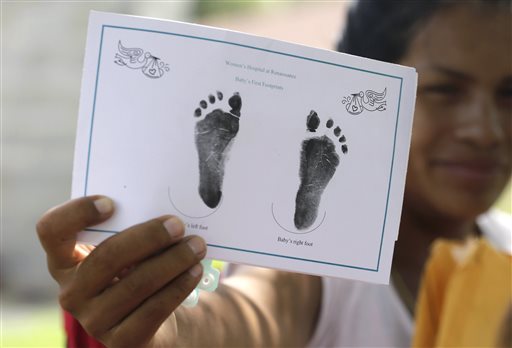
In this Sept. 16, a woman who said she entered the country illegally, shows in Sullivan City, Texas, the foot prints of her daughter who was born in the United State but was denied a birth certificate. A federal judge has chosen for now not to force Texas health officials to change their stance in denying birth certificates to immigrant families with U.S- born children, saying that the families raised “grave concerns” but more evidence is needed, according to a ruling issued Friday, Oct. 16.
October 22, 2015
SAN ANTONIO — A federal judge has chosen for now not to force Texas health officials to change their stance in denying birth certificates to immigrant families with U.S- born children, saying that the families raised “grave concerns” but more evidence is needed, according to a ruling issued Friday.
U.S. District Judge Robert Pitman in Austin denied an emergency injunction on behalf of immigrant families seeking birth certificates for their children after the Department of State Health Services refused to recognize as valid certain forms of identification.
The families’ lawyers had asked for the judge to intervene, saying that the children’s right to health care, travel, and schooling–along with parental rights–are being harmed.
Pitman called the arguments of the families “heartfelt, compelling and persuasive,” but said that this was “not enough without substantiating evidence to carry the burden necessary to grant relief,” according to the ruling.
At issue is the acceptance of identification cards_known as matriculas consulares_issued by Mexican consulates to citizens living and working in the United States. Lawyers for the families contend that prior to 2013 they were able to present these document, as well as foreign passports without U.S. visas in them, and obtain birth certificates in Texas.
The judge said in his ruling that attorneys had not shown that health officials had improperly “focused on and excluded” these documents. The judge also questioned the integrity of the information behind the consulate identification cards and passports.
“A birth certificate is a vital and important document,” he said. “As such, Texas has a clear interest in protecting access to that document.”
Texas Attorney General Ken Paxton said in a statement that the ruling “is an important first step in ensuring the integrity of birth certificates” and that the agency will continue to defend the health officials. The case will continue.
The immigrant rights lawyers, who now represent 28 adults and their 32 children, first sued officials with the Department of State Health Services’ Vital Statistics Unit last May.
The parents in the lawsuit entered the country illegally from Mexico and Central America, but the U.S. Constitution’s 14th Amendment guarantees the right of citizenship to children born here.
The judge was not dismissive of the families’ arguments that they were being harmed by being denied birth certificates for their U.S.-born children.
He raised the issue of school enrollment, saying that while it’s not necessary to show a birth certificate to place a child in school, a parent would have to produce a signed note explaining why the child does not have one. This he said would effectively admit that the parent is here illegally and “expose them to potential criminal liability and removal from the United States.”
He also acknowledged the families’ assertion that they were denied Medicaid and housing benefits_and that their newborns were even refused baptisms because they lacked birth certificates.
Pitman said that it “begs credulity” for lawyers representing the state agency to argue that “a birth certificate is not a vitally important document.”
Texas RioGrande Legal Aid attorney Jennifer Harbury, who is representing the children, said in a statement that Texas must create a path for them to gain access to birth certificates.
“It may not,” she said, “establish an obstacle course for these children alone.”

